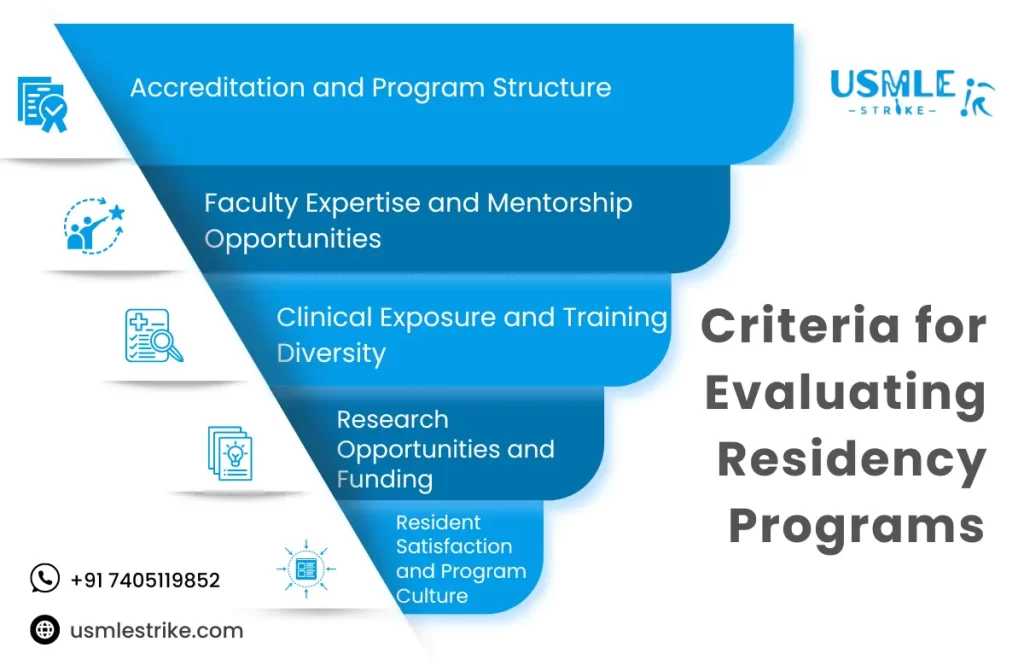When it comes to medical education in the U.S., understanding how to rank residency programs is crucial for students seeking their ideal match. After years of hard work, countless exams, and dedication, the residency program match process can seem daunting. That’s where resources like USMLEStrike come in. They provide valuable guidance and tools to help you navigate the complexities of this process. The residency rank order list is your key to securing a spot in a program that aligns with your career goals and personal preferences.
In this article, we’ll discuss the important aspects of how to rank residency programs effectively. From understanding what the rank order list is to knowing the best strategies for evaluation, we’ll cover everything you need to consider. By the end, you’ll be better equipped to create a rank list that maximizes your chances of matching into a residency program that fits you best.

What is the Residency Rank Order List?
The residency rank order list is a critical component of the Match process. It’s a list where applicants rank the residency programs they have interviewed with, in order of their preference. When the match algorithm runs, it takes into account both the applicants’ lists and the programs’ preferences for candidates. Understanding how to rank residency programs requires knowing how to prioritize your choices based on your experiences during interviews and your overall career goals.
How Does the Match Algorithm Work?
The Match algorithm is a complex system that pairs applicants with residency programs based on their rank order lists. The process starts with the applicant submitting their rank list to the National Resident Matching Program (NRMP). The algorithm then matches applicants to programs using a system that tries to create the best fit for both parties. Understanding this process is essential when learning how to rank residency programs, as the algorithm’s output will directly affect where you end up for your residency training.
Interviews and the Rank List
Interviews play a significant role in determining how to rank residency programs. After meeting with program directors, faculty, and residents, you’ll gain insights into the program’s culture, expectations, and opportunities. These interactions can help you assess which programs resonate most with your personal and professional values. By reflecting on your experiences during interviews, you can make informed decisions about where to place programs on your rank list.
Factors to Consider When Making the Rank List!
When figuring out how to rank residency programs, there are several factors to keep in mind:
- Program Reputation: Research the program’s reputation in your chosen specialty.
- Location: Consider the geographical area and its proximity to family and friends.
- Lifestyle: Think about work-life balance and the community around the program.
- Training Opportunities: Evaluate the clinical exposure and educational resources available.
- Mentorship: Assess the quality of mentorship offered by the faculty.
These elements will help you create a thoughtful rank list that aligns with your career aspirations.
Common Pitfalls to Avoid When Ranking Programs
When learning how to rank residency programs, it’s important to be aware of common mistakes applicants make:
- Rushing the Process: Take your time to reflect on your experiences before finalizing your list.
- Ignoring Gut Feelings: Trust your instincts about programs, as they can be a good guide.
- Focusing Only on Prestige: Remember that a program’s reputation isn’t everything; fit is equally important.
- Failing to Communicate with Mentors: Seek advice from mentors who know you well and can provide insights based on your strengths.
Avoiding these pitfalls will enhance your ability to make a strong rank list that aligns with your personal and professional goals.
Ranking Strategy
To maximize your chances of matching residency into a preferred residency program, develop a clear ranking strategy. Here are some tips:
- Evaluate Residency Programs Thoroughly: Use the criteria mentioned above to assess each program.
- Prioritize Fit: Rank programs that align with your goals and values higher.
- Be Honest: Don’t rank programs just because they are popular; focus on where you genuinely see yourself thriving.
- Keep Options Open: Include a mix of programs in your list to maintain a safety net.
Following a strategic approach to how to rank residency programs can significantly increase your chances of matching residency and securing your desired residency.
How Many Residency Programs Can You Rank?
Most applicants can rank as many residency programs as they want, but there are a few guidelines to consider. While there’s no official limit, think about the time and energy you’ll spend evaluating and interviewing programs. Generally, it’s best to focus on quality over quantity. Aim to rank programs where you feel confident about your fit and potential for success.
Important Tips for Ranking Programs
- Prioritize Fit Over Prestige: Choose programs where you see yourself thriving personally and professionally.
- Evaluate Residency Programs Holistically: Assess curriculum, faculty, work-life balance, and location.
- Don’t Overthink Competitiveness: Rank programs you genuinely want, regardless of perceived match difficulty.
- Trust Your Instincts: Reflect on interviews and interactions to gauge program culture.
- Be Honest: Avoid ranking programs you’re unwilling to attend, even if they boost your ranking chances.
- Discuss With Mentors: Seek advice from experienced physicians about program quality.
Residency Rank Order List Timeline
- November-December: Complete interviews and gather insights about programs.
- Early January: Reflect on each program’s strengths and your experiences during interviews.
- Mid-January: Begin drafting your rank order list and seek feedback from mentors.
- Late January: Finalize your evaluations and compare rankings with your goals.
- Early February: Submit your list, ensuring alignment with your priorities.
- March (Match Week): Celebrate the results of your thoughtful ranking strategy.
Top Strategies for Creating Your Residency Rank Order List
- Categorize Programs: Group programs into “ideal,” “realistic,” and “safety” tiers.
- Analyze Personal Goals: Reflect on your career aspirations and align them with program strengths.
- Factor in Lifestyle Needs: Consider commute, housing, and family requirements.
- Review Notes and Feedback: Use insights from interviews and post-interview notes to evaluate residency programs objectively.
- Think Long-Term: Rank programs that align with your future fellowship or specialty goals.
- Avoid Overemphasis on Rankings: Focus on fit rather than external ratings or prestige.
Why Students Should Choose USMLE Strike by Dr. Apurva Popat for Ranking Residency Programs
- Expert Guidance – Learn from Dr. Apurva Popat, the founder of USMLE Strike, who provides strategic insights for ranking residency programs effectively.
- Proven Strategies – Get a structured approach to residency selection, ensuring the best match for your career goals.
- Personalized Mentorship – Receive one-on-one guidance to navigate the complexities of the residency application process.
- Comprehensive Resources – Access high-quality materials, mock interviews, and ranking strategies to improve your chances of success.
- Success-Oriented Approach – Benefit from years of experience in helping students secure top residency positions through informed decision-making.
Conclusion
Mastering how to rank residency programs is a key step in your journey to becoming a physician. By understanding the rank order list, the Match algorithm, and important factors in evaluating programs, you can create a thoughtful and effective rank list. Remember, resources like USMLEStrike can guide you through this challenging process, helping you make informed decisions that lead to a successful match. Take the time to reflect on your options and evaluate residency programs thoroughly, and you’ll be well on your way to securing a residency position that suits you best.
Read also: Residency Interview Mistakes to Avoid





